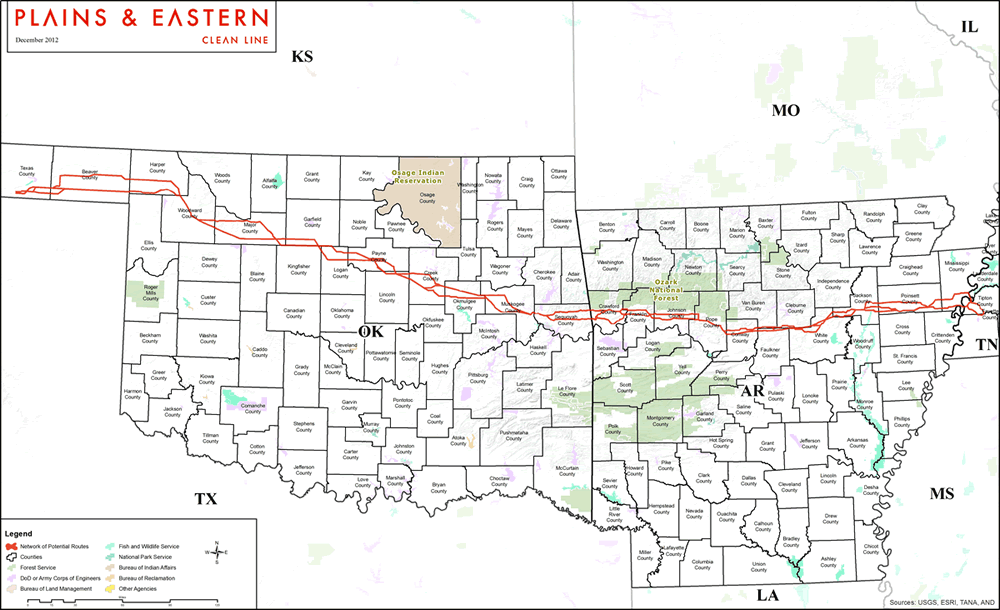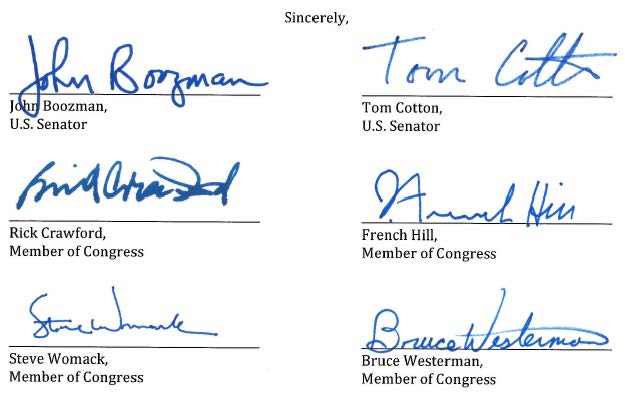DOE and SWPA sued in Federal Court
August 16th, 2016
YES!!! On to federal court!!! I love it when this happens! Downwind and Golden Bridge have sued the Department of Energy (DOE) and Southwestern Power Administration (SWPA)! Here’s a copy of the Complaint, give it a read:
Downwind, LLC & GoldenBridge LLC-v-DOE & SWPA – Case 3:16-cv-00207
Here’s the bottom line, what they’re asking for:
It’s focused on the DOE and Clean Line’s most vulnerable issues, those of improper potential use of eminent domain for private purpose and private company, and, as David Ulery says:
“Landowners were never offered an appropriate avenue for due process during the DOE’s review of Clean Line’s application,” he said. “An opportunity to comment is not the same as an opportunity to directly participate in the matter in an official capacity. Review is meaningless if those most affected are not given ample and significant opportunity to engage on a meaningful and substantive level.”
Clean Line and the DOE were asked, demanded, expected, to provide due process, and nope, nada, not the most basic opportunities to participate. Seems they’ve never heard of due process — how dare they! From June, 2015, here are multiple filings demanding due process:
BLOCK Plains & Eastern Clean Line docket filings
Here’s the first of articles to appear about the federal suit:
Opponents sue to block Clean Line project
By John LyonArkansas News Bureaujlyon@arkansasnews.com
Womack’s bill cleared the House Natural Resources Committee in June.
Arkansas Delegation, Section 1222, and Clean Line
September 15th, 2015
Yesterday, the Arkansas Delegation hit Plains & Eastern Clean Line where it counts — a line drive to the Secretary of the DOE with this letter:
Maybe this letter should have been headed “FREEDOM OF INFORMATION ACT REQUEST.” Plains & Eastern Clean Line applied under Section 1222 of the Federal Energy Policy Act of 2005.
For reference, here’s Section 1222 of Energy Policy Act 2005.
Many of the points raised were ones brought forward in testimony, public comments, and media reports of the Plains & Eastern Clean Line transmission line proposal. Questions the AR delegation raised include basic project information and:
- transactions and costs related to participation in Section 1222;
- obvious failure to qualify because it is not in a “national interest electric transmission corridor” under Section 216(a) of the Federal Power Act;
- improper use of Federal eminent domain authority undermining states’ rights;
- that the project is outside the statutory mission of federal Power Marketing Administrations (Southwestern PMA is proposed by Plains & Eastern Clean Line as partner in its project);
- project boundaries extend beyond the statutory boundaries of Southwestern Power Administration;
- costs for this private project could be transferred to electric utilities and their customers and this possibility has not been walled off/mitigated to insulate Southwestern’s customers;
- concerns about “non-completion” assessment of costs and prevention/mitigation have not been addressed;
- Clean Line’s assertions that they will pay certain taxes to local communities have not been investigated and verified;
- use of existing federal rights-of-way and federal land;
- Clean Line’s substantially incorrect, misleading, and/or inconsistent statements, which are basis for rejection or denial of the application, have not been addressed;
- draft EIS “did not meet the expectations of an inclusive, community-driven feedback process” expected of administrative agencies, and public comment periods and involvement of landowners and stakeholders was insufficient public engagement;
- questions regarding tribal consultation; questions regarding DOE position on state’s role in siting under Section 1222;
- impacts of traversing Mississippi Flyway on waterfowl and migratory birds, together with resultant economic and recreational impacts;
- impacts on public recreation on outdoor recreation in Arkansas;
- use of non-governmental email accounts for Department deliberations regarding this project.
Like WOW! I’m impressed — this letter is a work of art.





